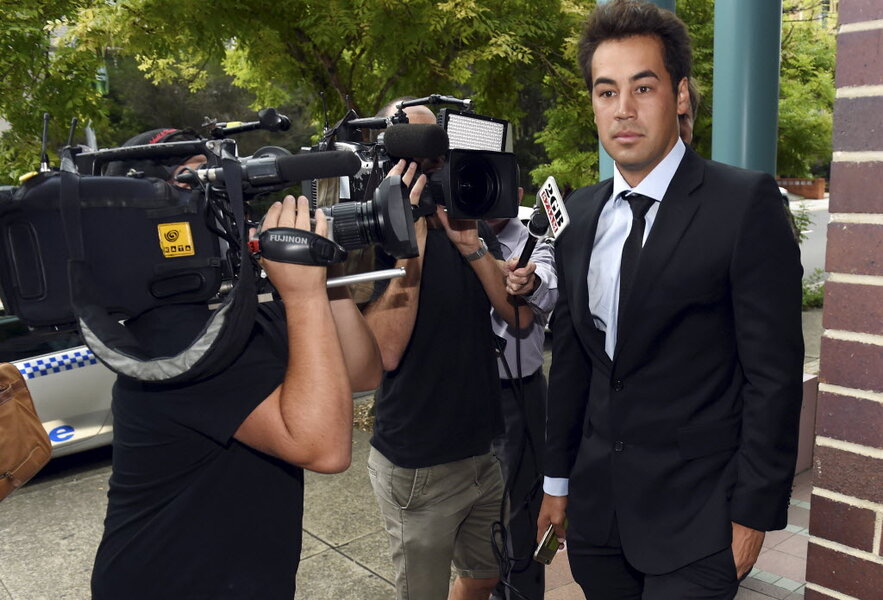Why even the Super Bowl needs a gambling shield
Loading...
Internet gambling on big sports, such as the Super Bowl and World Cup, has grown so fast in recent years – reaching an estimated $1 trillion a year – that even the United Nations is now worried. The UN arm that deals with organized crime plans to issue a “handbook” soon on how sports governing bodies can protect the integrity of athletes.
The UN’s biggest concern: match-fixing.
The handbook will be timely for at least one sport, professional tennis. The sport represents about a quarter of global online sports betting. It is also the third most vulnerable sport for gambling-related manipulation of matches, says the International Centre for Sport Security. Indeed, an investigation by journalists at the BBC and BuzzFeed claims at least 28 top-level players were implicated in deliberately losing matches to help gambling syndicates but were not punished.
Tennis authorities reject the claim. They point to the success of their Tennis Integrity Unit, which was set up in 2008, in catching a number of players who have thrown matches. And the Association of Tennis Professionals runs a “university” for would-be professionals that includes training on how not to be corrupted.
Sports gambling also worries the International Olympic Committee. It sees the effects of betting as more pervasive than doping. In a January meeting, the IOC issued a “code” of guidelines for athletic associations aimed at preventing match-fixing and other manipulations of sports. The body’s president, Thomas Bach, says clean athletes should not “see the finger of suspicion pointing at them.”
This global concern is also reflected in the United States, where at least 20 states are taking action against fantasy sports companies such as DraftKings. While it is unlikely a football team at the Super Bowl will be influenced by the billions in bets placed on the game, it is worrisome that the National Football League now sells its sports data for the benefit of gambling sites.
Worldwide, betting on sports may soon draw more revenue than ticket sales and advertising for big-time sports, if it hasn’t already. Sports officials are rushing to catch up with this trend by beefing up their “integrity units.” But so far it is not fast enough for the IOC and UN. Athletes who would not think of purposely losing a game deserve a shield from those who see sports as merely a game of chance and a means to make money.





